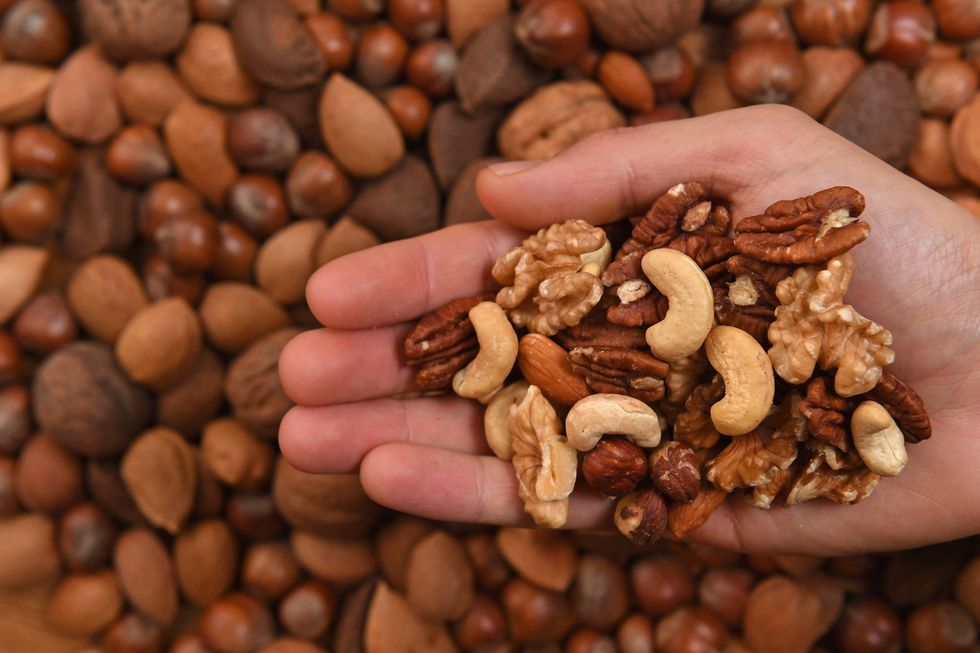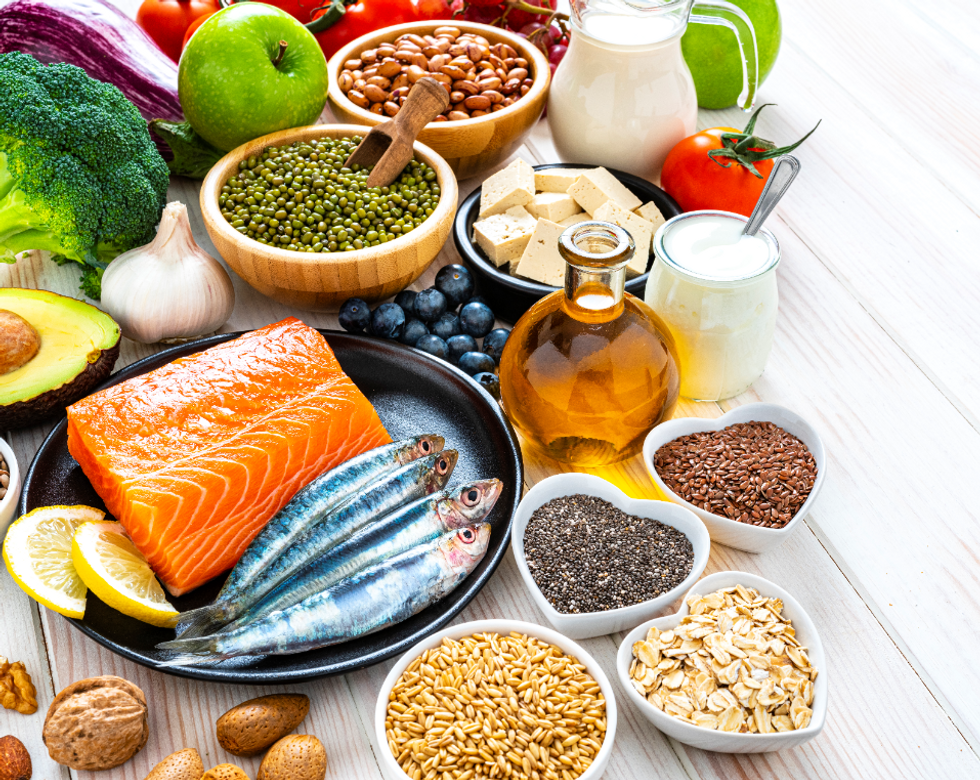Blood glucose expert Ann Garry on what foods and drinks to have to lower blood sugar levels
GB News
'Your diet should prioritise non-starchy vegetables like leafy greens and broccoli'
Don't Miss
Most Read
Trending on GB News
Individuals struggling to reduce their blood sugar levels should consider changing their diet, according to experts.
A nutritionist has shared exclusively with GB News what diets people should adopt depending on how their bodies respond to insulin.
Head of nutrition at Lumen Ulrike Kuehl said a low-carbohydrate approach is "recommended when insulin sensitivity is impaired".
She said: "When the body struggles to use insulin to regulate blood sugar efficiently, your diet should prioritise non-starchy vegetables like leafy greens and broccoli and healthy fats like avocados, nuts and seeds.

The expert recommended a low-carb approach and include foods like nuts in your diet
PA"Include lean proteins such as fish or tofu and consume dairy in moderation, preferably full-fat versions without added sugar like Greek yoghurt."
Ulrike said people should consider the amount of protein they eat, as it converts into glucogenic amino acids, which "potentially raise blood glucose levels for insulin-resistant individuals".
The nutritionist said: "This does not mean avoiding protein, but rather ensuring a balanced intake with sufficient fat and fibre to mitigate glucose fluctuations."
For those without signs of insulin resistance, the best dietary approach for blood sugar regulation is the Mediterranean diet, which is well-researched for its metabolic benefits.
Ulrike said: "Focus on foods rich in vegetables and legumes. Include whole grains like quinoa and whole oats in moderation.
"Healthy fats, particularly monounsaturated and omega-3 fats from olive oil, nuts, seeds, and fatty fish, are also good options."
An article published in the National Library of Medicine supported the nutritionist's points.
It stated: "The Mediterranean diet was linked to improved fasting glucose homeostasis, insulin levels, and a better insulin resistance index in both normoglycemic individuals and diabetic participants."
LATEST DEVELOPMENTS

The Mediterranean diet can help people reduce their blood sugar levels
GETTYFibre-rich foods also offer several health benefits, but it is important to understand the difference between the two types.
Ulrike explained: "Soluble fibre, found in oats, legumes, flaxseeds, and certain fruits like apples and pears, helps slow digestion. It creates a gel-like matrix in the gut that slows carbohydrate absorption and reduces postprandial glucose spikes.
"Insoluble fibre, found in whole grains, vegetables, and nuts, adds bulk to stool, indirectly improving gut health and insulin function.
"Fibre also feeds beneficial gut bacteria, which play a role in metabolic health and glucose regulation."







